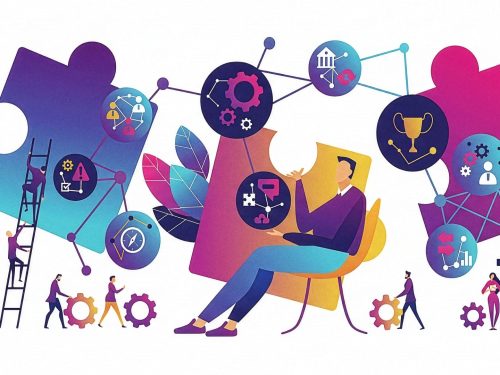Programme
European

Useful links
Share on
Erasmus+ is the European Union Programme in the field of education, training, youth and sport for the period 2021-2027.
The general objective of the Programme is to support, through lifelong learning, the educational, professional and personal development of individuals in the fields of education, training, youth and sport, in Europe and beyond, thereby contributing to sustainable growth, quality jobs and social cohesion, as well as to the promotion of innovation and the strengthening of European identity and active citizenship.
The Erasmus programme was launched in 1987 and has enabled 9 million people to study, train, volunteer or gain professional experience abroad.
The new programming is aimed at as many as 12 million people, compared to 4 million for the previous programming.
The aim is to foster learning opportunities abroad, partnerships and support for reforms that enable personal enrichment for all participants.
The Programme has a total indicative budget of more than EUR 26 billion for the period 2021-2027.
Erasmus+ will be based on the following elements:
1) Greater inclusivity: Erasmus+ will be able to reach even the most disadvantaged through various eligible activities, such as virtual exchanges and shorter study periods abroad. Thanks to eTwinning, school pupils will have more opportunities to study abroad and meet students from other countries.
2) Increased accessibility: access will also be aimed at smaller, local-level organisations, to facilitate the creation of small-scale partnerships. Projects will be shorter and have a smaller budget, while administrative requirements will be simplified. In addition, the administrative burden for all beneficiaries will be reduced, e.g. by favouring the use of online and simpler application forms.
3) Enlargement of the programme and greater future orientation: Erasmus+ will support cooperation between European universities located in different Member States with a view to creating a network of European universities. Support will be given to the development of centres of professional excellence, which, by providing specific education and training services, will be an impetus for innovation and excellence in this field. Finally, the Erasmus sports exchange opportunity will enable sports staff to gain learning experience abroad through teaching and job shadowing activities.
4) Increased internationalisation: there will be more opportunities for young students in higher education and vocational training to gain experience outside Europe.
Work Programme 2025 published
The Erasmus+ Work Programme 2025 is structured as follows.
The calls of interest to associations and companies are those underlined.
Key Action 1 - Individual learning mobility
- Individual mobility in the fields of education, training and youth;
- Youth participation activities;
- Mobility of sports coaches;
- DiscoverEU;
- Language learning opportunities;
- Virtual exchanges in higher education and youth.
Key Action 2 - Cooperation between organisations and institutions
Partnerships for cooperation:
-
- cooperation partnerships;
- small-scale partnerships.
Partnerships for Excellence:
-
- centres of professional excellence;
- European universities;
- Erasmus+ teachers' academies;
- Erasmus Mundus action.
Innovation Partnerships:
-
- alliances for innovation.
Capacity-building projects:
-
- capacity-building projects in the field of higher education;
- capacity-building projects in the field of vocational education and training;
- capacity-building projects in the youth field;
- capacity-building projects in the field of sport.
Key Action 3 - Support for Policy Development and Cooperation
- European Youth Together;
- Jean Monnet Actions.

Erasmus+: Call for Partnerships for Cooperation 2026
Access the full announcement in the reserved area

Erasmus+: Call for Innovation Alliances 2026
Access the full announcement in the reserved area

Erasmus+: Call for Capacity Building in VET 2026
Access the full announcement in the reserved area

Erasmus+: Call for Centres of Professional Excellence 2026





